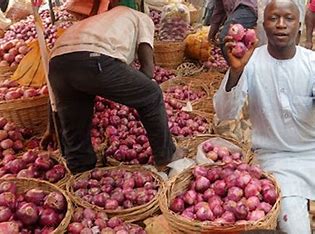
The National Onion Producers, Processors, and Marketers Association of Nigeria (NOPPMAN) has declared a state of emergency in the country’s onion industry, citing multiple challenges affecting the sector. The association called on stakeholders, including government bodies, financial institutions, and agricultural organizations, to collaborate and find solutions to the ongoing crisis.
In a press briefing on Thursday in Abuja, Isa Aliyu, the President of NOPPMAN and the Regional Observatory of Onion Sector in West and Central Africa, outlined several issues currently plaguing onion farmers and processors in Nigeria. These challenges include soaring costs of onion seedlings, rising inflation, post-harvest losses, and the impact of climate change, particularly extended rainfall patterns that disrupt traditional farming cycles.
Aliyu explained that the escalating costs of farm inputs such as fertilizer, pesticides, fuel, and labor are putting immense pressure on farmers, making it increasingly difficult for them to break even or turn a profit. He also highlighted how climate change has introduced unpredictable weather patterns, including excessive rainfall at unexpected times, leading to crop diseases, waterlogging, and poor harvests. These weather disturbances, Aliyu said, are undermining farmers’ ability to plan, plant, and harvest effectively, leaving the onion industry vulnerable.
In light of these challenges, NOPPMAN is calling for urgent intervention from the government and relevant stakeholders. Aliyu emphasized the need for subsidies on onion seedlings and essential farming inputs to ease the financial burden on farmers. He also urged the government to address post-harvest losses by providing modern storage facilities to preserve the quality of onions after harvest and improving transportation systems to reduce spoilage during transit.
Additionally, NOPPMAN has called for access to low-interest loans and financial support for farmers and requested the government, agricultural research institutions, and private sector partners to implement training programs focused on climate-smart farming practices. Aliyu expressed hope that a concerted effort from all involved could help safeguard the future of Nigeria’s onion industry.





